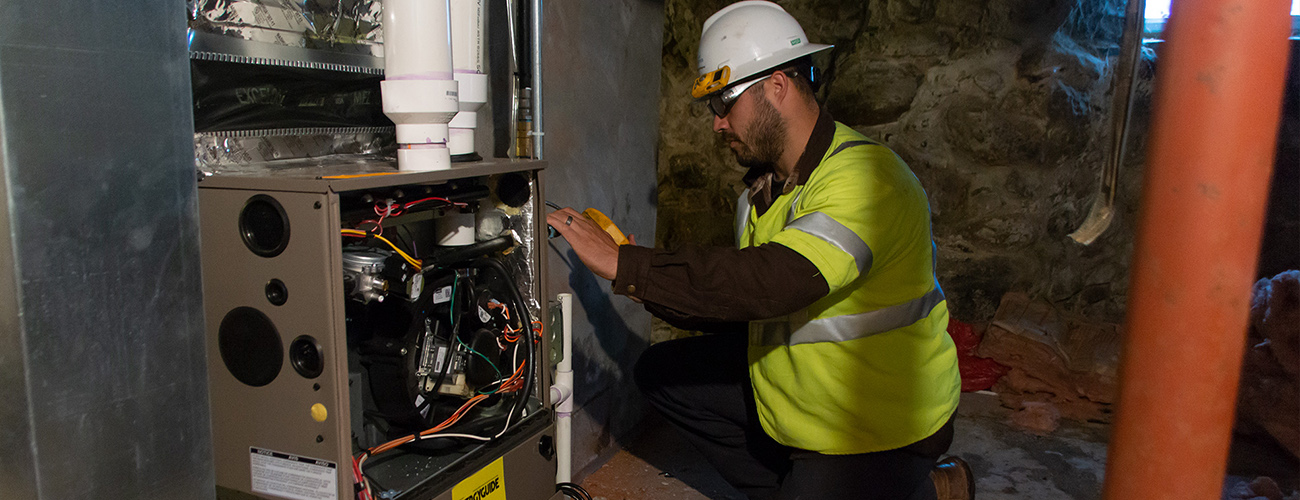
With colder weather upon us and furnaces expected to work longer to keep homes warm, Columbia Gas of Maryland encourages customers to stay safe by recognizing the risks of carbon monoxide (CO).
Carbon monoxide is an odorless, tasteless, non-corrosive gas created when fuels (such as gasoline, wood, natural gas, propane, or oil) burn incompletely. Even though natural gas doesn’t contain carbon monoxide, it can be produced when there’s not enough oxygen present for natural gas, oil, or any other fuel to burn properly.
Carbon Monoxide Prevention Tips:
- Purchase carbon monoxide detectors or make sure yours are operating properly
- Make certain all fuel-burning equipment (coal, wood, natural gas, propane, pellet stoves, kerosene, and fuel oil) is installed, inspected, and operating properly
- Hire a professional to install all fuel-burning appliances, including ovens, stoves, and clothes dryers
- Do not cut off or restrict air sources to appliances
- Provide adequate indoor ventilation when using fireplaces or unvented space heaters
- Never burn charcoal indoors or in an enclosed space
- Clean chimneys and check for blockages
- Open garage doors before starting vehicles
- Do not heat your home with a gas oven or burn anything in a fireplace that is not vented
Carbon Monoxide Poisoning Symptoms:
Carbon monoxide may cause any or all of the following symptoms:
- Human symptoms include headaches, dizziness, nausea, vomiting, irregular breathing, ringing in the ears, seeing spots, feeling ill or tired at home but feeling fine away from home, loss of consciousness, and respiratory failure.
- Household symptoms include foul-smelling or stale air, the smell of exhaust fumes, a yellow or orange flame on natural gas ranges and stoves, soot around the outside of a chimney, furnace or water heater flue vent, or large areas of condensation of water vapor on walls or windows.
Don’t ignore the warning signs. Carbon monoxide can be fatal within five minutes at high concentrations.
Columbia Gas recommends that you have your natural gas appliances serviced annually by a qualified professional. In addition to keeping your appliances operating at optimal efficiency for energy conservation, this is one of the best ways to prevent carbon monoxide emergencies. For a list of qualified plumbers or contractors, please visit www.ColumbiaGasMD.com/safety/home-safety/find-a-contractor.
If you think carbon monoxide is present or your CO detector sounds, leave the area to get fresh air, immediately call 911 and Columbia Gas at 1-888-460-4332, and DO NOT GO BACK until repairs are made and it is safe to reenter.
To learn more about how to stay safe from carbon monoxide, please visit www.ColumbiaGasMD.com/CO.

